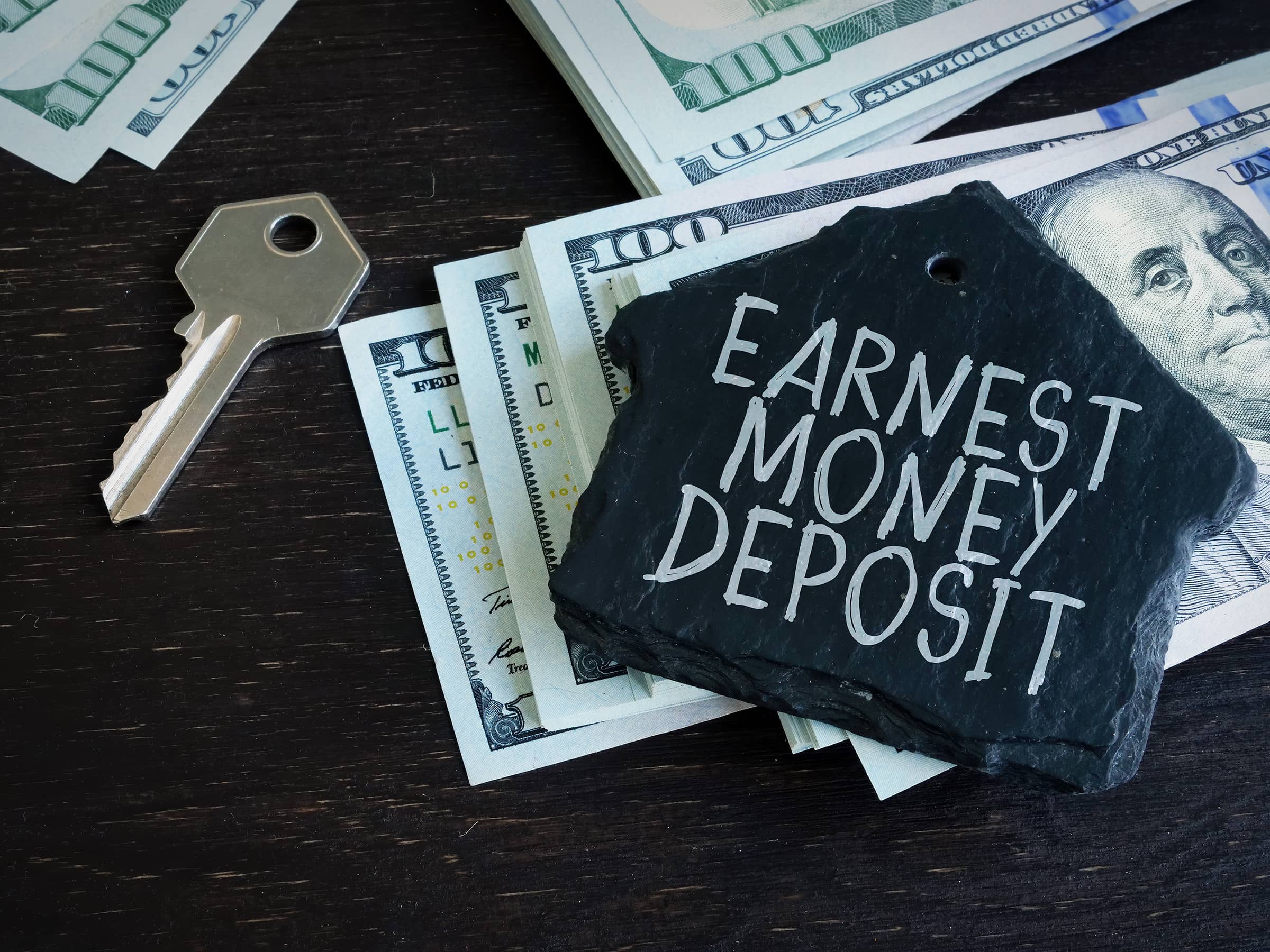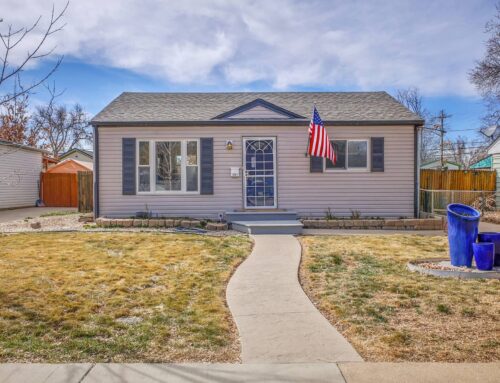
What Is Earnest Money In Real Estate?
Are you considering buying real estate and want to know what earnest money is? You’re in the right place! Earnest money is a critical term in real estate transactions, and buyers need to understand it before making an offer. This article discusses why earnest money matters, how much is typically required, loan program requirements, contingencies and conditions, refunds and repayment policies, and buyer tips. We’ll also look at the Colorado earnest money requirements. Let’s get started!
Key Takeaways
- Earnest money is a good faith deposit that shows the buyer’s seriousness about buying a home.
- It is typically between 1-3% of the sale price and is held in an escrow account until the deal closes.
- Earnest money protects the seller if the buyer backs out and prevents buyers from making offers on multiple homes without intending to close.
- If the transaction goes well, earnest money is applied towards the down payment or closing costs.
What is Earnest Money, and Why is it a Key Term in Real Estate?
Earnest money is an essential term in real estate, and it’s simply a good-faith deposit that shows you’re serious about buying a home. It’s typically between 1–3% of the sale price and held in an escrow account until the deal closes. This money protects the seller if something goes wrong and the buyer backs out, preventing them from having to relist their home and start over.
Depositing earnest money also guards against buyers submitting offers on multiple homes without any intention of closing on them. If all goes well with the transaction, earnest money is applied toward your down payment or closing costs. However, should any contingencies in the contract fail – such as a failed home inspection – you get your earnest money back.
Earnest Money: Amount and Deposit
When deciding on an amount to offer as a deposit, it’s important to consider the local real estate market and your competition. Knowing what other buyers offer can help you determine how much earnest money you should put down. In a slow market, standard rates usually suffice. But if multiple buyers are interested in the same property, putting down more than others may give you an edge. Your real estate agent can provide guidance about current market trends and bidding wars so that you make the best decision. And don’t forget—cash offers often trump all other types of bids! So if cash is an option for you, it could also be worth considering.
Loan Program Requirements
It’s important to know the loan program requirements when making an offer on a property to ensure your bid meets all necessary criteria. Earnest money is usually part of a loan program requirement. It’s typically an upfront deposit made by the buyer and held in escrow to show they are serious about purchasing the home. The amount of earnest money varies depending on the loan program but is typically 1-3% of the purchase price. Some programs may accept less or require more than this amount. Additionally, the lender may also specify how and where it should be deposited, such as with an attorney or title company. Ultimately, knowing all applicable loan requirements will help you ensure that both seller and lender accept your offer quickly and easily!
Refunds and Repayment
You may be wondering if earnest money is refundable and how it applies to your down payment. Well, there are a few details to consider when it comes to the repayment of earnest money. For instance, an individual’s amount as earnest money is generally nonrefundable unless certain contingencies aren’t met in the contract. If those conditions aren’t fulfilled, you might be able to get that money back. Additionally, any amount of earnest money paid can go towards a down payment on the property so long as all terms have been agreed upon by both parties involved.
Contingencies and Conditions
Contingencies and conditions help both parties in the transaction protect their investments, allowing either to back out of the deal if specific requirements aren’t met. Understand all scenarios that could cause you or the seller to back out and its impact on your earnest money. Make sure to stay on track with your responsibilities, such as inspections or mortgage approvals, so as not to give the seller grounds to take your deposit. Put everything in writing; include any timeline changes and who gets the earnest money should the contract be canceled. Doing this will ensure a safe and secure real estate purchase for both parties involved!
Is Earnest Money Refundable?
When considering the question of whether earnest money is refundable, it’s important to consider the various contingencies that may be included in a real estate contract. Home inspection contingencies, appraisal contingencies, and financing contingencies are all commonly used to protect against unforeseen issues, as well as contingencies for selling an existing home. Knowing how each of these works and what consequences arise from them can help ensure you’re making an informed decision about your earnest money deposit.
Does Earnest Money go Toward Down Payment?
Earnest money is not applied to your down payment, so you’ll have to come up with additional funds for that. The earnest money deposit is a sign of good faith when you make an offer on a home, and it comes out of your pocket before the closing. It’s typically 1% to 3% of the purchase price and goes into an escrow account until the sale closes. If all terms are met, it will become part of your down payment. However, suppose you don’t follow through with your agreement. In that case, the seller keeps the earnest money as compensation for their time and effort in trying to sell their property. As such, it’s important to read over all documents before signing them so there are no surprises later on.
Earnest Money: Buyer Tips
As a buyer, it’s important to understand the implications of not depositing earnest money. If you fail to make this deposit, you may lose your right to purchase the home and forfeit any associated fees that have been paid up until that point. The seller may also be able to keep your earnest money if certain conditions are met. Knowing when this is allowed can help you protect yourself and your finances throughout the buying process.
What Happens if Buyer Does Not Deposit Earnest Money?
If the buyer fails to deposit earnest money, it can signal a lack of commitment to going through with the purchase. This is because earnest money is a good-faith deposit that demonstrates to the seller that the buyer is serious about completing the transaction. Earnest money also serves as an insurance policy, so if a buyer backs out of the deal for any reason other than those outlined in their contract, they will forfeit their earnest money. Generally speaking, if buyers refuse to put down earnest money or cancel their agreement without lawful cause, they could be facing legal action from the seller.
It’s important for buyers to understand that committing to placing earnest money down is not actually making any payment towards their home purchase and does not necessarily guarantee them a property either. It simply shows that they are ready and willing to proceed with closing on a property once all contingencies have been satisfied.
When Can A Seller Keep Earnest Money?
When it comes to property purchases, sellers may be able to keep earnest money if certain conditions aren’t met. Earnest money is a deposit made by the buyer that shows their commitment to the purchase of a home or other real estate. It’s usually held in escrow until closing when it’s applied towards the purchase price. However, there are times when a seller can keep earnest money under certain circumstances.
Suppose a buyer does not close on the transaction and there is no legal reason for them to do so – such as if they fail to get financing or don’t meet other contingencies listed in the contract –. In that case, the seller may be entitled to keep all or part of the earnest money. Additionally, if a buyer terminates without just cause, they might forfeit any earnest money already deposited.
Under some circumstances, buyers may have valid grounds for keeping their earnest money even if they terminate without cause. For example, a seller could breach the obligations stipulated in the contract and thus release the buyer from any further liability related to purchasing them property; this could result in an automatic refund of all deposits made by that buyer.
How much Earnest Money is Required in Colorado?
Don’t let Colorado’s real estate market leave you in the dust—make sure you know how much earnest money is required! The amount of earnest money that a buyer must deposit varies depending on what type of property they are buying. Most typically, homebuyers in Colorado will be expected to provide between 1-3% of the purchase price as earnest money for residential properties. For instance, if a buyer is purchasing a property worth $300,000, they should expect to put down $3,000 to $9,000 as an upfront payment. This deposit holds the seller accountable and safeguards against any breach of contract by either party. Remember that when it comes time for closing day, this initial deposit may be credited towards your final closing costs or refunded to you depending on the terms of your offer agreement.
Conclusion
You now have a better understanding of earnest money in real estate, and you know how much is required in Colorado. When it comes to buying or selling a home, it’s important to remember that earnest money is an essential part of the process. Keeping contingencies and conditions in mind will ensure that you’re not taken advantage of, and knowing when to ask for refunds or repayment will give you peace of mind. With this knowledge, you can confidently move forward with your next real estate transaction.







